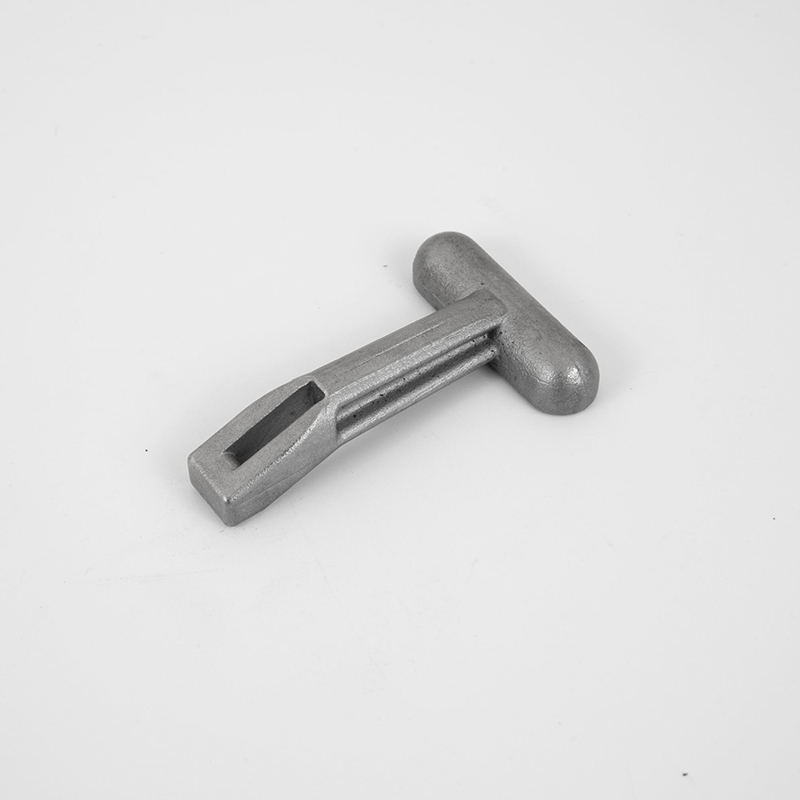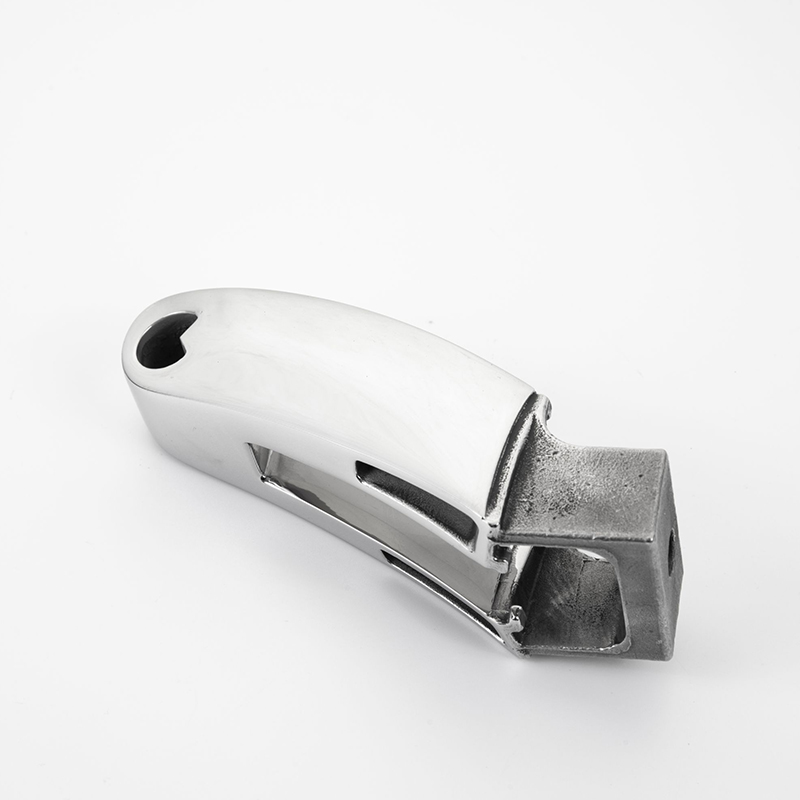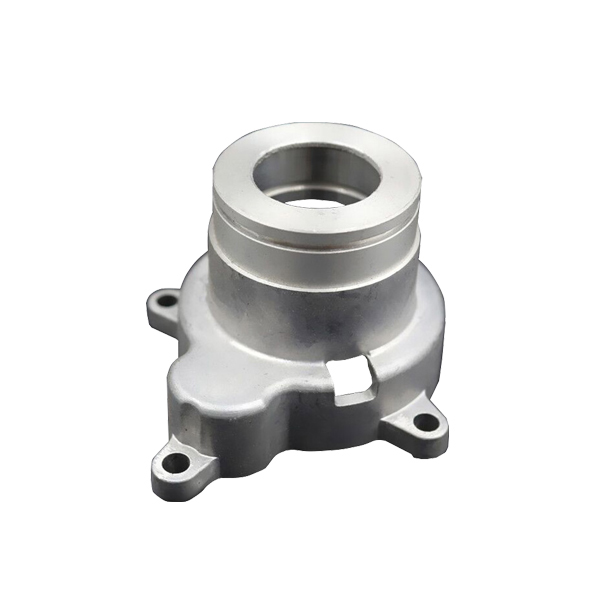Products
Aluminum Machining Workshop
You are welcomed to come to our factory to buy the latest selling, low price, and high-quality Aluminum Machining Workshop. We look forward to cooperating with you.An aluminum machining workshop is a specialized facility that focuses on the production of parts made from aluminum alloys. Aluminum is a popular material in machining due to its lightweight, strength, and corrosion-resistant properties, and is used in a wide range of applications across many different industries.
Send Inquiry
Product Description
What is Aluminum Machining Workshop?
An aluminum machining workshop is a specialized facility that focuses on the production of parts made from aluminum alloys. Aluminum is a popular material in machining due to its lightweight, strength, and corrosion-resistant properties, and is used in a wide range of applications across many different industries.
In an aluminum machining workshop, skilled machinists use specialized machines and tools to produce high-quality parts that meet the exact specifications of their clients. Aluminum machining requires a high level of skill and precision, as aluminum alloys can be challenging to work with due to their tendency to deform or "gum up" during machining. Machinists in an aluminum machining workshop use specialized cutting tools and techniques to avoid these issues and produce accurate and high-quality parts.
Some common applications for aluminum machined parts include aerospace and defense equipment, automotive components, computer hardware, and consumer products. Aluminum machining workshops can produce a wide range of parts, from simple components to complex assemblies and prototypes.
Overall, an aluminum machining workshop plays an important role in many industries, providing manufacturers with the high-quality parts they need to operate efficiently and competitively.
In an aluminum machining workshop, skilled machinists use specialized machines and tools to produce high-quality parts that meet the exact specifications of their clients. Aluminum machining requires a high level of skill and precision, as aluminum alloys can be challenging to work with due to their tendency to deform or "gum up" during machining. Machinists in an aluminum machining workshop use specialized cutting tools and techniques to avoid these issues and produce accurate and high-quality parts.
Some common applications for aluminum machined parts include aerospace and defense equipment, automotive components, computer hardware, and consumer products. Aluminum machining workshops can produce a wide range of parts, from simple components to complex assemblies and prototypes.
Overall, an aluminum machining workshop plays an important role in many industries, providing manufacturers with the high-quality parts they need to operate efficiently and competitively.
Why is it Called Aluminum Machining Workshop?
An aluminum machining workshop is called as such because it is a specialized facility that specifically focuses on the production of parts and components made from aluminum alloys. The term "aluminum machining" refers to the process of cutting, shaping, and finishing aluminum workpieces using various machines and tools to create a desired shape or product. Therefore, a workshop that mainly specializes in aluminum machining is called an aluminum machining workshop.
The workshop is equipped with specialized machines and tools specifically designed to work with aluminum alloys. The machinists in an aluminum machining workshop are skilled in working with this material to ensure that parts are produced with precision and accuracy to meet the requirements of their clients.
The workshop is equipped with specialized machines and tools specifically designed to work with aluminum alloys. The machinists in an aluminum machining workshop are skilled in working with this material to ensure that parts are produced with precision and accuracy to meet the requirements of their clients.
What is the Aluminum Machining Workshop Process?
The aluminum machining workshop process involves several steps that are carefully executed by skilled machinists to produce high-quality aluminum parts. The process begins with planning the job and preparing the aluminum workpiece through cleaning, degreasing, and measuring. Then, the workpiece is fixed in place with clamps, bolts, or specialized fixtures to prevent movement during machining. Machining operations are then performed using specialized machines and tools to shape the workpiece into the desired specifications. Once machining is complete, the part is inspected to ensure it meets the required standards for functionality and quality. Finally, finishing processes such as sandblasting or anodizing may be applied to improve the strength, durability, and appearance of the part. The entire process takes a high level of skill, precision, and attention to detail to ensure that the final product is accurate and meets client requirements.
What Materials can be Aluminum Machining Workshop?
An aluminum machining workshop exclusively works with aluminum alloys, which are mixtures of aluminum and other metals that offer a variety of properties including strength, hardness, and corrosion resistance. Several aluminum alloys are commonly used in machining, such as 6061-T6, 7075-T6, 2024-T3, 3003-H14, and 5052-H32. Each alloy has its own unique characteristics that make it ideal for a particular application. For example, 6061-T6 is commonly used due to its high strength and good weldability, while 5052-H32 is known for its good formability and corrosion resistance. Machinists in an aluminum machining workshop are trained to work with a variety of aluminum alloys, in order to produce precise, accurate and high-quality parts according to specific project requirements.
What is Aluminum Machining Workshop Used For?
An aluminum machining workshop is used for a wide range of purposes across many different industries. Here are some of the most common uses of aluminum machining workshops:
Aerospace industry: Parts and components made from aluminum alloys are commonly used in aircraft and aerospace applications due to their lightweight and high strength-to-weight ratio.
Automotive industry: Aluminum components such as engine blocks, wheels, and suspension systems are used to reduce vehicle weight and improve fuel efficiency.
Electronics industry: Aluminum parts are used in the manufacturing of electronic devices and equipment, as they offer good thermal conductivity and are non-magnetic.
Marine industry: Aluminum alloys are often used in the marine industry due to their excellent corrosion resistance and durability.
Military industry: Aluminum components are used in a variety of military applications, from vehicles and aircraft to weapon systems.
Consumer products: Aluminum parts are used in many consumer products such as sports equipment, furniture, and appliances, due to their lightweight and corrosion resistance.
Overall, an aluminum machining workshop offers a range of manufacturing capabilities for many industries, producing custom parts that are durable, lightweight, and cost-effective. The workshop is equipped with specialized machines and skilled labor to produce high-quality aluminum parts to meet specific project requirements.
Aerospace industry: Parts and components made from aluminum alloys are commonly used in aircraft and aerospace applications due to their lightweight and high strength-to-weight ratio.
Automotive industry: Aluminum components such as engine blocks, wheels, and suspension systems are used to reduce vehicle weight and improve fuel efficiency.
Electronics industry: Aluminum parts are used in the manufacturing of electronic devices and equipment, as they offer good thermal conductivity and are non-magnetic.
Marine industry: Aluminum alloys are often used in the marine industry due to their excellent corrosion resistance and durability.
Military industry: Aluminum components are used in a variety of military applications, from vehicles and aircraft to weapon systems.
Consumer products: Aluminum parts are used in many consumer products such as sports equipment, furniture, and appliances, due to their lightweight and corrosion resistance.
Overall, an aluminum machining workshop offers a range of manufacturing capabilities for many industries, producing custom parts that are durable, lightweight, and cost-effective. The workshop is equipped with specialized machines and skilled labor to produce high-quality aluminum parts to meet specific project requirements.
What are the benefits of Aluminum Machining Workshop?
There are several benefits to using an aluminum machining workshop, including:
Lightweight: Aluminum is a lightweight material that is ideal for many applications, especially in aerospace and automotive industries that require lightweight components to improve fuel efficiency and performance.
Strength: Despite its light weight, aluminum alloys can be very strong, making them ideal for applications that require high-strength components.
Corrosion resistance: Aluminum alloys have excellent resistance to corrosion, making them ideal for use in marine, outdoor, and other harsh environments.
Customization: Aluminum machining workshops can provide customized parts and components to meet specific client requirements and specifications.
Speed: Aluminum machining workshops are equipped with specialized machinery that can produce parts quickly and efficiently. This means that manufacturers can meet tight production deadlines and reduce overall production costs.
Versatility: Aluminum machining workshops can work with different aluminum alloys, each with unique properties, to produce parts and components suitable for a wide range of applications.
Overall, an aluminum machining workshop offers several benefits to manufacturers, including lightness, strength, corrosion resistance, customization, speed, and versatility. The ability to produce high-quality aluminum parts and components makes this type of workshop a valuable resource for many industries.
Lightweight: Aluminum is a lightweight material that is ideal for many applications, especially in aerospace and automotive industries that require lightweight components to improve fuel efficiency and performance.
Strength: Despite its light weight, aluminum alloys can be very strong, making them ideal for applications that require high-strength components.
Corrosion resistance: Aluminum alloys have excellent resistance to corrosion, making them ideal for use in marine, outdoor, and other harsh environments.
Customization: Aluminum machining workshops can provide customized parts and components to meet specific client requirements and specifications.
Speed: Aluminum machining workshops are equipped with specialized machinery that can produce parts quickly and efficiently. This means that manufacturers can meet tight production deadlines and reduce overall production costs.
Versatility: Aluminum machining workshops can work with different aluminum alloys, each with unique properties, to produce parts and components suitable for a wide range of applications.
Overall, an aluminum machining workshop offers several benefits to manufacturers, including lightness, strength, corrosion resistance, customization, speed, and versatility. The ability to produce high-quality aluminum parts and components makes this type of workshop a valuable resource for many industries.
Product details



Hot Tags: Aluminum Machining Workshop, China, Manufacturer, Supplier, Factory, Customized, Made in China
Related Category
Investment Casting
Shell Mold Sand Casting
Lost Foam Casting
Water Glass Casting
Lost Wax Casting
Die Casting
Precision Machining
CNC Machining
Turning Machining
Machining Workshop
Send Inquiry
Please Feel free to give your inquiry in the form below. We will reply you in 24 hours.








